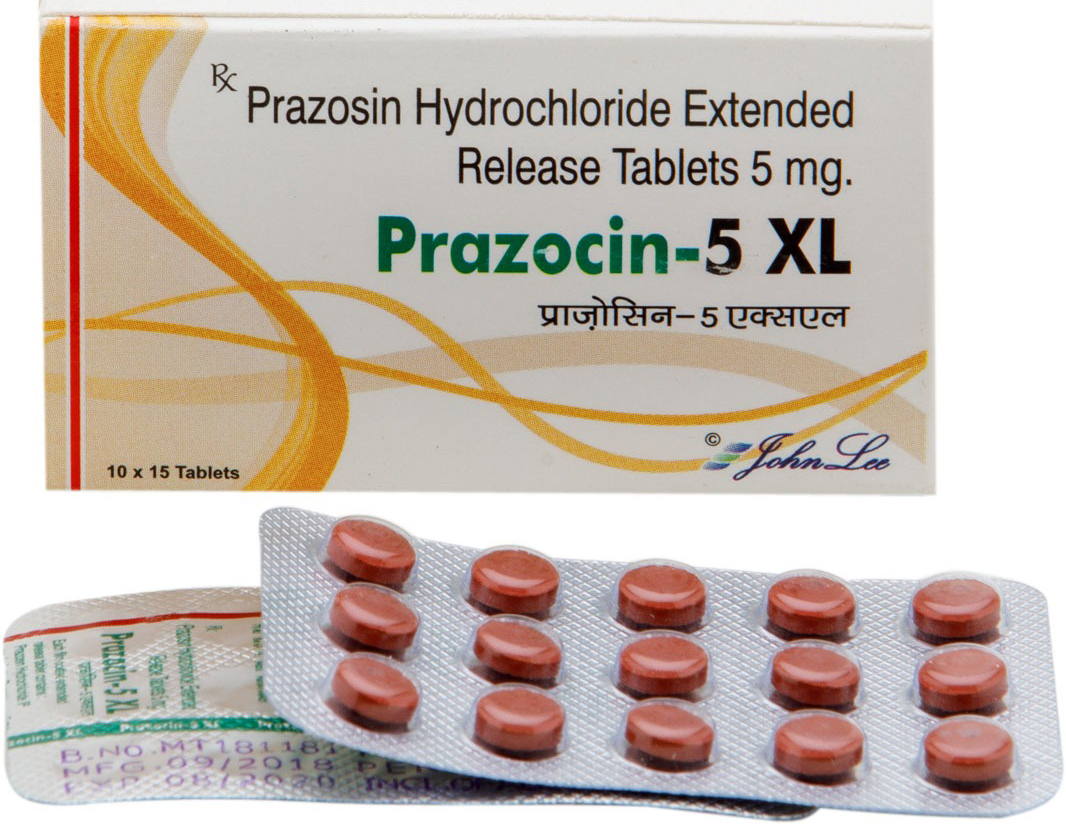Cytokine Storms: John Hopkins Researchers To Start Clinical Trial Of Alpha-Blocker Prazosin In COVID-19 Patients To Prevent Cytokine Storms
Source: Cytokine Storms May 25, 2020 5 years, 8 months, 1 week, 3 days, 13 hours, 32 minutes ago
Cytokine Storms: Researchers from Howard Hughes Medical Institute at John Hopkins say that alpha-blockers like
prazosin might prevent cytokine storms in COVID-19 patients and are planning a new clinical trial to test these drugs. The clinical trial will be led by medical investigator Dr Bert Vogelstein. He and his team at the Johns Hopkins University School of Medicine are currently recruiting individuals for the trial, which includes patients ages 45 to 85 at the Johns Hopkins Hospital who have COVID-19 but who are not on a ventilator or in the ICU.

Alpha blockers typically are used to lower blood pressure by keeping the hormone norepinephrine from tightening the muscles in the walls of smaller arteries and veins. As a result, the vessels remain open and relaxed. This improves blood flow and lowers blood pressure.
As alpha blockers also relax other muscles throughout the body, these medications also can help improve urine flow in older men with prostate problems.
Alpha blockers are either short-acting or long-acting. Short-acting medications work quickly, but their effects last only a few hours. Long-acting medications take longer to work, but their effects last longer. Alpha blockers are also called alpha-adrenergic blocking agents, alpha-adrenergic antagonists, adrenergic blocking agents and alpha-blocking agents. Examples of alpha blockers used to treat high blood pressure include: Doxazosin, Prazosin and Terazosin.
According to the researchers, alpha blockers can also break a cycle of hyperinflammation before it ramps up. They said their findings from mouse studies and a recent analysis of medical claims data suggest as such.
Dr Vogelstein said, “The approach we are advocating involves treating people who are at high risk early in the course of the disease, when you know they are infected but before they have severe symptoms.”
https://www.thailandmedical.news/news/covid-19-drugs-john-hopkins-researchers-recommend-further-clinical-investigation-of-blood-pressure-drug-prazosin-to-treat-cytokine-storms
Should the trial’s results suggest the drug is safe and effective against COVID-19, it could potentially help many people recover safely at home and lessen the strain on hospital resources.
Typically when macrophages and some other kinds of immune cells detect virus particles, they send out alert messages by releasing various proteins known as cytokines. Those cytokines recruit other immune cells to the scene — an inflammatory response that, in moderation, helps the body fight off a virus.
But macrophages can also release other signaling molecules, called catecholamines, that amplify this response further, triggering the release of more cytokines. The result is a runaway feedback loop, like a snowball getting bigger as it barrels down a hill.
Dr Maximilian Konig, a rheumatologist at John Hopkins who is helping to coordinate the trial commented, “It seems that once this process starts, there is this inability to properly switch it off.”
Pr
ior to COVID-19, Dr Vogelstein’s team was already exploring ways to ease the hyperinflammatory immune response in cancer patients treated with immunotherapy. The researchers were interested in drugs called alpha blockers, which are widely prescribed for prostate conditions and high blood pressure and also interfere with the cell signaling that triggers cytokine storms. In theory, alpha blockers might stop a cytokine storm before it starts.
It was observed that administering alpha-blockers to animal models (mice) with bacterial infections lessened cytokine storms and decreased deaths.
Dr Vogelstein’s team reported in the journal
Nature in 2018. And, the researchers found, the treatment didn’t seem to harm other aspects of the immune response.
https://www.nature.com/articles/s41586-018-0774-y
However as the COVID-19 pandemic escalated in the United States over the past few months and severely ill patients presented with cytokine storm symptoms, the idea of testing alpha blockers in humans has become more urgent, Dr Vogelstein’s team recently argued in the
Journal of Clinical Investigation.
https://www.jci.org/articles/view/139642
In order to obtain approval for an alpha blocker clinical trial, Dr Vogelstein’s team first surveyed medical claims data. They combed through records from people hospitalized for pneumonia and acute respiratory distress and analyzed whether patients’ outcomes were better if they had been taking alpha blockers for unrelated conditions. The team’s tentative conclusion: taking alpha blocker drugs correlated to a lower risk of death from respiratory distress.
However on its own, that’s not strong enough evidence to prescribe the drug for a wholly new disease like COVID-19, says Dr Susan Athey, an economist at Stanford University who collaborated with Vogelstein’s team on the claims analysis. But it helps bolster the case for the team’s clinical trial.
For the coming trial, COVID-19 patients will take gradually increasing doses of an alpha blocker called prazosin over six days, says Dr Chetan Bettegowda, a neurosurgeon at John Hopkins who is helping to design and run the trials.
Subsequently the team will evaluate whether individuals who received this treatment had a lower ICU admission rate or ventilator use than patients who received the standard treatment. They’ll follow each patient for 60 days, but preliminary data from the first patients could be available within weeks to months.
Should the trial’s results suggest alpha blockers are safe and effective, the research team hopes to run a second trial with patients who have been diagnosed with COVID-19 but are not yet hospitalized. They’re also encouraging colleagues at other hospitals to join their clinical trial efforts, to gather patient data more quickly.
Dr Vogelstein warns that this treatment, should it works, would be a secondary form of prevention, , mitigating symptoms before they become severe, rather than stopping infection in the first place.
For more on
Cytokine storms and
prazosin, keep logging to Thailand Medical News
We Desperately Need Your Help. Please Help To Sustain This Website And All Our Initiatives To Propel Research By Donating. https://www.thailandmedical.news/p/sponsorship
